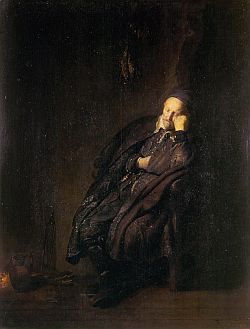Keith had seen Franklin Fastener, his great-great-great-grandfather’s company, through many trials in his tenure since taking over from his dad at the tender age of 30. The company made the best nuts and bolts in America. Which is why it pained Keith to think that he might have to close it down on his watch. Too little business coupled with too much competition from China. So when ConHugeCo asked for a bid on a massive project that would keep Franklin rolling in dough for another decade or more, Keith was ecstatic. He spent three months working hand in hand with ConHugeCo’s people to ensure the bidding went smoothly and the multinational got everything it asked for—both immediately and in spades. So it came as a terrible shock when the winning bid went to Shin Dao Manufacturing. Keith went home an hour later and cried for the first time in as long as he could remember.
Kendra first spotted Zach when he prayed for an elderly couple after the service. She was new to the church then, but it was impossible for her not to notice the tall, handsome, young man. Something clicked inside her when their eyes first met. It took Zach almost a year to ask her out, but when he did, she was convinced that this was finally The One. Zach was loved by many and could not be more respected. He had a job in banking and seemed to do no wrong. After a couple months of “by the book Christian dating,” Kendra thought she might finally hear the three words every gal longs for, but instead, Zach said he didn’t think that the relationship was working for him, and he walked away.
Rebecca had the house, the means, and the love of children to start a daycare in her home. Her husband, Rick, encouraged her to go for it, especially since many in their neighborhood were struggling to find good daycare. Though Rick has a solid job as a security specialist for a large computer company, he and Rebecca were planning to give her daycare income to some friends who were missionaries working in an orphanage in Uganda. But Rebecca’s elation and godly hope soon turned to despair. There would be no daycare in her home because the state would not license her. Why? Because in Rick’s youth he had been convicted of felony computer hacking before he turned his life around, and the state would not issue a daycare license if a convicted felon lived in the home.
Keith, Kendra, and Rebecca. Three burned people.
Then Peter came up and said to him, “Lord, how often will my brother sin against me, and I forgive him? As many as seven times?” Jesus said to him, “I do not say to you seven times, but seventy-seven times. “Therefore the kingdom of heaven may be compared to a king who wished to settle accounts with his servants. When he began to settle, one was brought to him who owed him ten thousand talents. And since he could not pay, his master ordered him to be sold, with his wife and children and all that he had, and payment to be made. So the servant fell on his knees, imploring him, ‘Have patience with me, and I will pay you everything.’ And out of pity for him, the master of that servant released him and forgave him the debt. But when that same servant went out, he found one of his fellow servants who owed him a hundred denarii, and seizing him, he began to choke him, saying, ‘Pay what you owe.’ So his fellow servant fell down and pleaded with him, ‘Have patience with me, and I will pay you.’ He refused and went and put him in prison until he should pay the debt. When his fellow servants saw what had taken place, they were greatly distressed, and they went and reported to their master all that had taken place. Then his master summoned him and said to him, ‘You wicked servant! I forgave you all that debt because you pleaded with me. And should not you have had mercy on your fellow servant, as I had mercy on you?’ And in anger his master delivered him to the jailers, until he should pay all his debt. So also my heavenly Father will do to every one of you, if you do not forgive your brother from your heart.”
—Matthew 18:21-35 ESV
We know well this passage about the unjust steward who received forgiveness for his massive debt but would not forgive another for a much smaller one. My pastor preached on it yesterday and talked about forgiving those who sin against you as a bedrock discipline for true disciples.
I wondered about those cases when no sin is involved, though. That comes up often enough to merit some discussion. In fact, I discussed these same cases with three friends after the service.
In the examples above, ConHugeCo simply chose another winner for their bid, while Zach decided that his relationship with Kelly was not going to lead to marriage. Keith and Kelly felt the brunt of those decisions, and ultimately felt terrible and suffered for the decisions, but again, no one sinned, so by the Bible’s standard, there was nothing or no one to forgive. In Rebecca’s situation, Rick had been forgiven years ago. And the state was just abiding by its own laws in an attempt to protect children.
In these three cases, each person feels wronged. But is forgiveness merited? And to whom?
What do you think? Why?

 Yesterday, I switched the wallpaper on my computer. It shows lighthouses now.
Yesterday, I switched the wallpaper on my computer. It shows lighthouses now. “‘And in the last days it shall be, God declares, that I will pour out my Spirit on all flesh, and your sons and your daughters shall prophesy, and your young men shall see visions, and your old men shall dream dreams…'”
“‘And in the last days it shall be, God declares, that I will pour out my Spirit on all flesh, and your sons and your daughters shall prophesy, and your young men shall see visions, and your old men shall dream dreams…'”